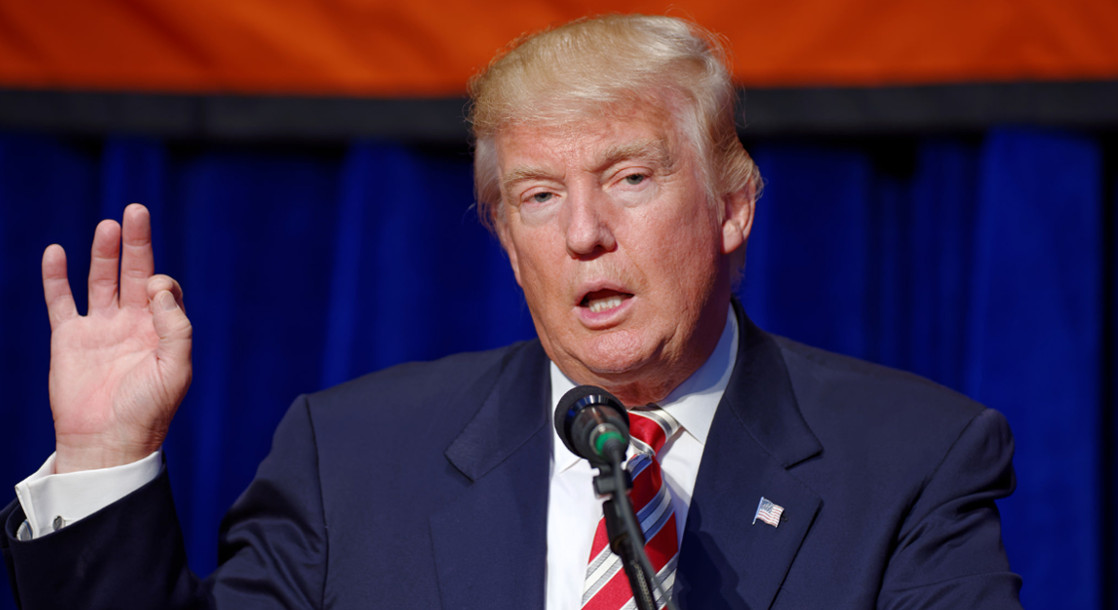Photo via Michael Vadon
A set of trade tariffs on steel and aluminum imported into the United States from Canada, Mexico and the European Union went into effect at midnight today, spurring immediate retaliation from U.S. allies and near-unanimous lambasting from American government officials and economic experts.
Since he first formulated his policy goals and talking points during the 2016 presidential campaign, Donald Trump has harped on what he believes is a “bad deal” on imports from China, which he claims has been detrimental to both American manufacturing and national security. Per Trump’s line of thinking, the new taxes would help stop the influx of cheap steel and aluminum from overseas, inspire American factories to ramp up production, and enable local manufacturers to competitively produce weapons and tanks that the president argues are necessary for “national security.”
But while Trump has spent most of his time rallying supporters around imposing trade sanctions on China, the president’s executive order in March — imposing a 25% tariff on steel and 10% tax on aluminum — not only applied to China, but set up a ticking time bomb of temporary tariff exemptions for those same metals imported from Canada, Mexico, and the E.U.
Now, after two months of unsuccessful negotiations with Canada and Mexico to try and reshape the North American Free Trade Agreement (NAFTA), Trump’s metal tariffs will now hike steel and aluminum prices on all sides of the U.S. border. Despite Trump’s frequent focus on China, the U.S. actually imports most of its steel and aluminum from Canada and the E.U., with $12.4 billion and $7.7 billion worth of metal crossing those respective borders annually, while Mexico and China each send $2.9 billion of those metals stateside each year.
Officially taking effect on Friday morning, the new tariffs on U.S. allies was met with quick frustration, anger, and retribution from around the globe and in Trump’s own backyard.
Just minutes after the new tariffs went into effect, Mexican officials announced a series of products that they planned to add new taxes to in retaliation, including U.S. steel, pork, apples, cranberries, and cheeses. Likewise, Canadian officials announced billions of dollars of new tariffs on American exports, including steel and aluminum, but also including household items like ketchup, insecticides, and laundry machines. French Finance Minister Bruno Le Maire responded with similar threats.
"Our U.S. friends must know that if they were to take aggressive actions against Europe, Europe would not be without reaction,” Le Maire told reporters Thursday.
In Washington, a who’s who of federal legislators and economic experts lined up to criticize Trump’s move, while warning of possible domestic price hikes on everything from beer to new cars.
“Europe, Canada and Mexico are not China, and you don’t treat allies the same way you treat opponents,” Nebraska Republican Senator Ben Sasse wrote in a statement released Thursday, in which he also called the new tariffs “dumb.”
"These tariffs will raise prices and destroy manufacturing jobs, especially auto jobs, which are one-third of all Tennessee manufacturing jobs. I have urged President Trump to focus on reciprocity — do for our country what our country does for you — instead of imposing tariffs, which are basically higher taxes on American consumers," Tennessee Republican Senator Lamar Alexander added in his own statement.
But even as the rest of the world threatened to wade deeper into an all-out trade war while the president’s most ardent supporters climbed over each other to denounce the decision, Trump responded as he typically does, on Twitter, with a two word, all-caps exclamation:
FAIR TRADE!
— Donald J. Trump (@realDonaldTrump) May 31, 2018











